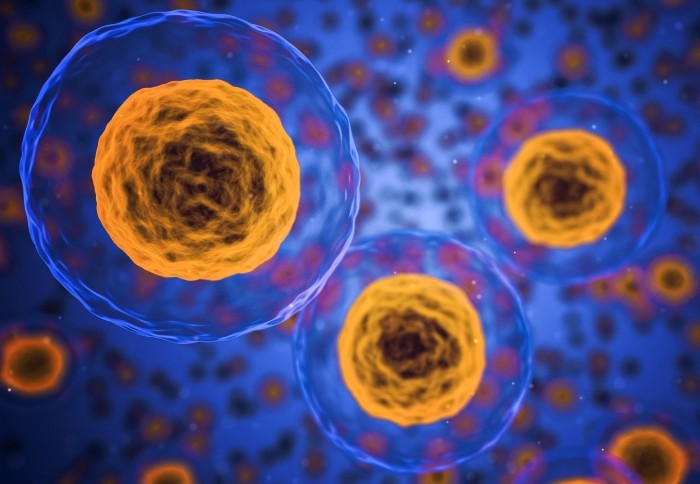New platform technology could reduce the cost of cell therapies
by Sara West

Academics have been awarded funding to develop a new and more economically viable platform technology for cell cryopreservation.
A collaboration between Dr Rongjun Chen, Department of Chemical Engineering, and Professor Xiao-Ning Xu, Department of Infectious Disease, will develop new methods of freezing and preservation for cell therapy. Their research aims to provide a safer and more economically viable alternative to existing cryopreservation procedures.
Cell-based therapies currently use dimethyl sulfoxide (DMSO) in the process of cell cryopreservation, which is a crucial step in the supply chain. The chemical preserves cells as they are transported from the patient to the manufacturing site, and then returned to the patient for administering.
The problem with dimethyl sulfoxide is that it’s toxic and can lead to incidents of high cytotoxicity, significant loss of cellular functionality and adverse side effects on central nervous, cardiovascular and respiratory systems in a substantial proportion of patients. This can result in adverse patient outcomes, supply chain issues and extremely high treatment costs.
"We are excited to combine our expertise in intracellular delivery and cell cryopreservation with Professor Xu’s experience in cell therapy, with the goal of tackling these problems and making cell therapy cheaper and more accessible to patients worldwide." Dr Rongjun Chen Department of Chemical Engineering
Dr Chen and Professor Xu are developing a method of cryopreservation which uses an alternative to dimethyl sulfoxide. Trehalose is a disaccharide – a sugar consisting of two molecules of glucose – which accumulates in a range of freezing- and desiccation-tolerant organisms in nature. Research suggests trehalose could increase cell survival rates post-thaw. This would provide a safer and more economically viable alternative to the dimethyl sulfoxide method.
One of the challenges they will seek to address in this project is that trehalose is impermeable to cell membranes, and therefore they will need to deliver the cryoprotective sugar to the cell interior and identify the optimal amount of trehalose concentrations around and within the cells for optimal bio-protection.
Dr Rongjun Chen commented: “Cell therapy is an emerging area of medicine with an enormous potential to benefit patients suffering from a wide range of diseases. To fully realise its potential the industry will need to find solutions to the manufacturing and storage issues of therapeutic cells.
“We are excited to combine our expertise in intracellular delivery and cell cryopreservation with Professor Xu’s experience in cell therapy, with the goal of tackling these problems and making cell therapy cheaper and more accessible to patients worldwide.”
Professor Xiao-Ning Xu added: “A new formulation for the successful cryopreservation of biological samples such as dendritic cells could play a pivotal role in research connected with clinical utility for all kinds of human trials, ranging from vaccine efficacy to cancer therapy”
The research project will focus specifically on the cryopreservation of dendritic cells. These are specialised antigen-presenting cells which play a key role in initiating and regulating both innate and adaptive immune responses. They are considered one of the central candidates for antigen delivery and vaccination. If successful, the new technology could be used in future therapies based on dendritic cells, and potentially extended to therapies using T-cells and stem cells.
The funding was awarded by the Imperial Confidence in Concept initiative which provides pilot funding to bridge the gap between discovery research and potential to meet a market need in medicine.
-
Image credit: Arek Socha from Pixabay
Article text (excluding photos or graphics) © Imperial College London.
Photos and graphics subject to third party copyright used with permission or © Imperial College London.
Reporter
Sara West
Communications Division